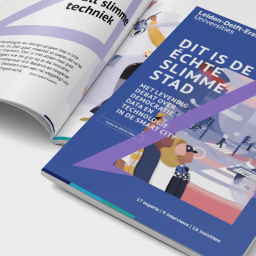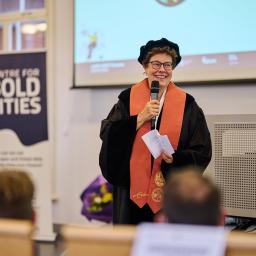
With trendy terms like smart city, metaverse and digital twin, urban government and businesses are defining the future image of the city. Yet, what kind of municipality do we actually want to be? That is a question the city council must keep raising, Jiska Engelbert and Henk Bouwmans say. By Meike Schipper
Technology is politically relevant, but often remains invisible

The benefits affair has etched the risks of technological systems into political memory. Yet a broad political debate on technology has yet to get off the ground. 'Technology and digitalisation are not even in the top 25 of most important topics, according to municipal council members,' says Henk Bouwmans, director of the Dutch Association for Council Members. 'Only when there is a problem or incident, such as a data breach, is attention paid to it. But that attention also quickly ebbs away again.' According to Engelbert, the election programmes of political parties are a telling example of this. 'If there is anything about technology in them at all, it is about doomsday scenarios.'
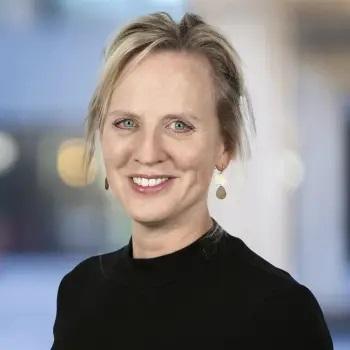
‘The invisibility of technology hides its political relevance'. Technological problems are invisible to most people and therefore it is not an immediate topic,' Bouwmans explains. Smart city researcher Jiska Engelbert agrees: 'We talk about sensors and small cameras, for example. As a citizen, you don't get to experience much of it and that makes it an unattractive topic for political campaigns.'
City council members do not like to take positions on technology. 'They often have the idea that you should leave technological issues to people who know something about technology. That knowledge is not always present in the municipal council,' according to Engelbert. Still, she says that need not be a barrier. 'It is politically relevant for everyone.’
Companies set the narrative about technology
The political silence regarding technology favours big tech companies. They have carefully engineered it themselves, Engelbert argues. 'According to their narrative, the big issues of the future, as well as the incidents surrounding technology, can only be solved by technology.'
We have outsourced the visionary thinking to tech companies.’
Engelbert observes that many municipalities go along with the idea that technology is the biggest challenge of all and that you have to be an expert to understand it. 'A position like Chief Digital Officer, which most big cities now have, you used to see only in big private companies. Large departments are being set up around it, where a lot of people from the telecom sector, for example, come to work.' In this way, the civil service is actually also showing that they feel they lack the expertise themselves, as if technology requires some kind of radical new skill in public administration.'
 Riding the wave of technological progress then becomes an end in itself. Big cities invest a lot in international marketing and want to raise their profile in technology, Engelbert observes. This results in circular reasoning. 'Why are we doing this? Because we want to be smart. Why do we want to be smart? Because we want to do this.'
Riding the wave of technological progress then becomes an end in itself. Big cities invest a lot in international marketing and want to raise their profile in technology, Engelbert observes. This results in circular reasoning. 'Why are we doing this? Because we want to be smart. Why do we want to be smart? Because we want to do this.'
The city council can take back its role
Besides the influence of tech companies, the set-up of public administration in the Netherlands also poses an obstacle for municipal council members to exert influence on the smart city. According to Bouwmans, the dualisation introduced in 2002 plays a role in this. 'It was established then that the city council, as the highest administrative body, should establish the frameworks, in other words, it should set the course. Implementation lies with the daily administration, or the Municipal Executive. And in the Netherlands, we see technology and informatisation as implementation,' says Bouwmans. Therefore, technological issues land on the plates of aldermen and civil servants.
In the Netherlands, we see technology and informatisation as implementation.’
When the city council does consider technology, it gets bogged down in all sorts of places. 'Usually, they immediately hit the emergency brake in the form of a motion,' Engelbert says. 'In a number of big cities, a motion is in the making in which the city council asks aldermen to come up with a framework for technological applications. An algorithm register or a policy framework, for example. Officials then hire all kinds of experts to come up with a policy framework.' In doing so, the city council outsources its own task of setting the course.
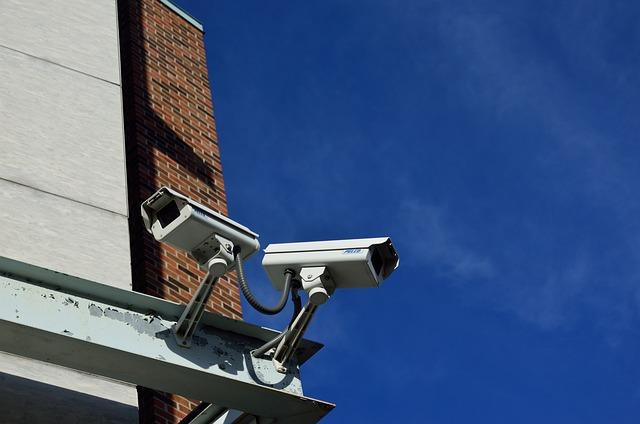 The current situation is not workable for officials either, Bouwmans observes. 'Officials often don't know exactly what the council wants. And instead of talking to each other, fear takes over. Because they have to respond to a motion within a certain timeframe. Whereas the civil service might actually give it back: different scenarios are possible here, can we talk about that?'
The current situation is not workable for officials either, Bouwmans observes. 'Officials often don't know exactly what the council wants. And instead of talking to each other, fear takes over. Because they have to respond to a motion within a certain timeframe. Whereas the civil service might actually give it back: different scenarios are possible here, can we talk about that?'
Technology issues are about how we want to live with each other
Camera surveillance is an interesting example, according to Bouwmans and Engelbert. 'There was a problem with security. It seemed an easy solution to install cameras everywhere,' says Bouwmans. 'The actual problem was lost from sight. There's no evidence for the effectiveness of camera surveillance. At most, cameras contribute to some kind of subjective experience of security. 'Other political choices are available to tackle the issue of criminal youth or loitering,' says Engelbert.
Once camera surveillance is in place, it is difficult to let it go again. 'Then, you're already on the track of technological solutions,' Bouwmans says. 'The city council sometimes takes a quick look at it, but the security problem lies with the mayor. The police think mainly from the perspective of repression, without addressing the elementary questions. Do we really want to move towards Big Brother-like concepts?'
The city council outsource sits task: setting the course.’
Technology is not necessarily the solution
A technological issue is therefore essentially about what kind of society we want to create. 'Perhaps we need to go back to the drawing board to define again the purpose of the city council and the civil service,' says Engelbert. 'As far as I'm concerned, the city council can say, for example: 'Wait a minute, why do we need to invest in bodycams? If you can only spend public funds once, then why on that?''
So it is very important to look beyond the technology, Engelbert stresses. 'The questions the council often asks are about the issues you have to consider once a technology is there. Very valuable, but as far as we're concerned, there's another step before that: questioning the automaticity with which technology is accepted as the solution to the problem.'
Jiska Engelbert is strategic director of the Leiden-Delft-Erasmus Centre for BOLD Cities and focuses on the perception of smart cities. She is associate professor at Erasmus University Rotterdam.
Henk Bouwmans is director of the Dutch Association for Council Members. The Association promotes a strong position for municipal council members and supports them in fulfilling their democratic duties.
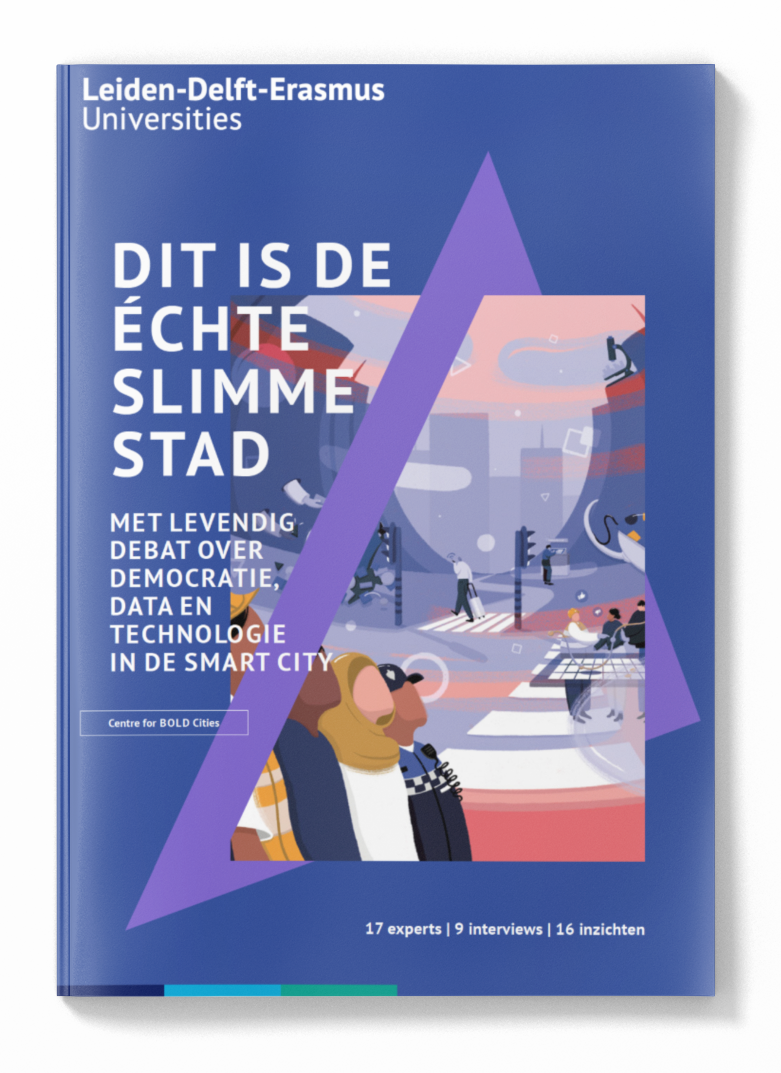 White paper about Smart Cities
White paper about Smart Cities
This article is a publication from the white paper 'This is the real smart city, with lively debate on democracy, data and technology'. This (Dutch) publication by the Leiden-Delft-Erasmus Centre for BOLD Cities contains 9 double interviews on the rise of the smart city. It contains an English summary and list of recommendations.

